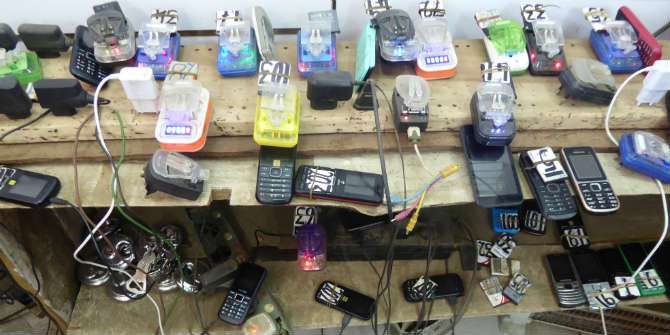This blog by Polis Summer School student Reena Gurung is based on a talk by BBC News producer Stuart Hughes who lost a leg in a landmine explosion while covering the conflict in Iraq.

Ever since the Vietnam War, media globalisation has made conflict a part of everyone’s life in this modern world. This is where the war reporters play the crucial role of mediators to bring us stories covering the various dimensions of war from some of the most vulnerable places of the earth.
Stuart Hughes from BBC said journalists covering war have been labeled as ‘war correspondents’, but many reject the label.
As someone who reported from Iraq, Bosnia to Afghanistan and vastly covering the news coming out of the Arab Spring, Stuart began with the imperatives of the role that technology is playing in changing the spectrum of war reportage. He set out a timeline from the Second World War where correspondents started reporting carrying acetate discs to the first satellite phones that were used in Iraq and Bosnia during the early 90s. Then he underlined the practice of videophones, which were widely operated in the early 2000s in Iraq and Middle East.
Now they have BGANS (Broadband Global Area Networks) and Wi-Fi , and this has completely transformed the face of war reporting, pushing editorial to new boundaries, said Stuart. These technological breakthroughs have in fact made getting the news out of hostile situations in Afghanistan, the Middle East and North Africa feasible.
Stuart emphasized the importance of opportunities that new techology has introduced to the field of war reporting. But he also argued that modern technology could be a curse, as work pressure would multiply, as everything becomes faster and more competitive at the same time.
In one of the interviews that Stuart showed, the BBC’s outstanding correspondent Alan Little highlighted his experience of the effects of technological changes during two Iraq wars. In 1991, reporters would have more time to ask questions to people and scrutinize, as there were no instant communications as such. On the other hand, Alan mentioned that the satellite phones made immediate live coverage possible in 2003, which changed the war coverage into something even more demanding.
There is a particular notion that Stuart Hughes thinks people in general often misunderstand about war reporters. He said he could not think of a single (good) reporter who has been to war who would be happy with the term ‘war correspondent’. We also saw Alan Little, Caroline Wyatt and other prominent correspondents agreeing with Stuart.
Stuart said they would prefer to be thought of as journalists who happen to be in a war zone rather than as a cliched macho ‘war correspondent’.
Thirdly, Stuart highlighted the role of embedding, where journalists are working closely with the protection of the military. He told that this idea of embedding is in fact a product of 2003 Iraq war.
What about the future? Stuart highlighted that covering war has always been expensive and resources are limited. Now even the military has started using its own cameras in combat to document its own frontline stories and to provide material for mainstream media.
But Stuart contended that in spite of the growth of citizen journalism and filming by the military or NGOs, Correspondents with the right training and experience are always required to give context and insight into life during conflicts. He said their work would always be vital, no matter how much the media transforms itself in this digital age.
So why did Stuart get involved in this genre of journalism? He said he wanted to do something different and when he realized that he was more or less sucked into this, he wanted to move on further to advance his career. The consequence of that choice was dramatic for him personally.
Stuart explained how he got caught in the minefield on the town of Kifri, Iraq in 2003. One of his legs was amputated below his knee. This hasn’t stopped Stuart from working. In fact, he says it has made him stronger and he is now one of the BBC’s senior World Affairs producers. His story is truly inspiring.
This article by Polis Summer School student Reena Gurung




More of Reena Gurung!